By Jorge Barrera
APTN National News
OTTAWA–The Harper government and the Assembly of First Nations on Tuesday jointly announced a multi-pronged plan on governance, education, treaties and economic development.
Both sides will report back in a year on progress.
The plan was released at the conclusion of the Crown-First Nations gathering that saw hundreds of chiefs from across the country travel to Ottawa for the chance to have the Prime Minister Stephen Harper and cabinet minister hear their voices.
The gathering sputtered to a beginning with uncertainly swirling over what exactly would be unfolding during the event. There was confusion and frustration over how many chiefs would be able to attend the actual events at the John G. Diefenbaker Building on Sussex Dr. and which ones would be relegated to over flow rooms at a luxury hotel blocks away.
There was also widespread anger and disappointment over the prime minister’s plan to leave the gathering early to prepare for an economic meeting in Davos, Switzerland.
The problem was compounded after a meeting between Harper and a small delegation left some participating chiefs wondering if the prime minister was serious about dealing with their issues.
In the end, however, Harper chose to stay throughout the event, taking in the closed-door sessions with cabinet ministers and First Nations delegates and he even had lunch with chiefs. A long line reportedly formed with chiefs wanting to have their picture taken with the prime ministers.
While the government made no major announcements, AFN National Chief Shawn Atleo said the meeting was a first step on a long path. Atleo said the plan would allow First Nations leaders and the Canadian government grapple with some issues that have defied resolution for years.
“We’ve heard from representatives in fact from the Crown that there is an urgency, that in my view, have been recognized,” said Atleo. “There is a growing sense of urgency and a link to Canada’s economic future…now is the time to invest in First Nations.”
Aboriginal Affairs John Duncan called the gathering “historic” and said it had been a “very special” day.
“We have spoken frankly, listened carefully and strengthened our relationship,” said Duncan. “I believe this important gathering brings important momentum to move forward.”
The plan, however, seems to pick winners and losers in a section that outlines certain communities that show a high-level of political stability receive multi-year financial deals from the federal government, which would take away a lot of the year-to-year uncertainty over program funding for services.
Duncan said the model is already in use in determining with First Nations are able to get under the Land Management regime, which allows about 55 First Nations to set laws around the use of their territory and set up land codes.
“We’ll go through a similar exercise with First Nations in terms of who has the capacity to enter into longer-term financial agreements,” said Duncan.
The plan also includes a section aimed at getting around some of the barriers created by the over century-old Indian Act which controls almost every aspect of reserve life from cradle to grave.
While Harper and Atleo seem to differ in their view of how quickly the Indian Act could be replaced-the prime minister favours a take it slow approach, while Atleo wants urgent action-the national chief said this will give both sides a chance to hash out their differences on the issue.
“We both see it as blocking, not only our relationship, but adversely impacting people’s lives every single day,” said Atleo. “We have not had the kind of conversation to talk about what the Indian Act has meant in our lives…that can only come through jointly designing a way forward.”
The plan also commits both sides to move quickly on the recommendations expected any day now from government-AFN panel report on reserve education. The education section also promises to establish a process to settle disagreements on the issue.
Some First Nations in Ontario, Quebec and Saskatchewan rejected participation in the panel’s work, but it remains unclear what role these regions would play since the federal government is looking to introduce legislation on education.
The plan calls for the government to “honour” and “respect” the treaty relationship with First Nations and ensure Ottawa’s negotiating policy conforms with Constitutional enshrined Aboriginal rights.
The plan also calls on an economic task force to study ways to boost First Nations economic development.
The announced plan contained no dollar figures or commitments for another similar, high-level meeting between First Nations leaders and the federal government.
Many chiefs called for the prime minister to agree to another meeting that would also include premiers. Grand Chief Stewart Phillip, president of the Union of BC Indian Chief, and Assembly of Manitoba Chiefs Grand Chief Derek Nepinak both said there was a need to continue high-level gatherings so Canada could finally have lasting peace with its Indigenous peoples once and for all.
Dene National Chief Bill Erasmus said the Crown-First Nations Gathering was heavy with feel-good emotions and words, but short on actual concrete results.
“There is a lot of disappointment out there, but this is a beginning,” said Erasmus. “I am optimistic that we will make progress, but I know that it is within the total lifetime that I am here, it is not going to be tomorrow. We are going to have to push this as AFN, we are going to have to do the follow up and we can’t pretend we made a big accomplishment today. There is no financial commitment, there is no political commitment. I am not okay with it.”
jbarrera@aptn.ca




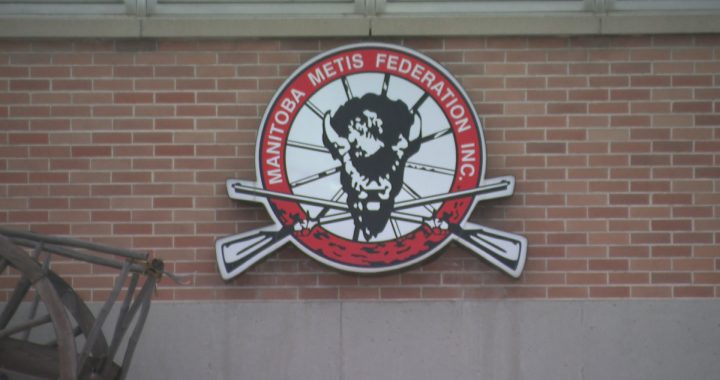
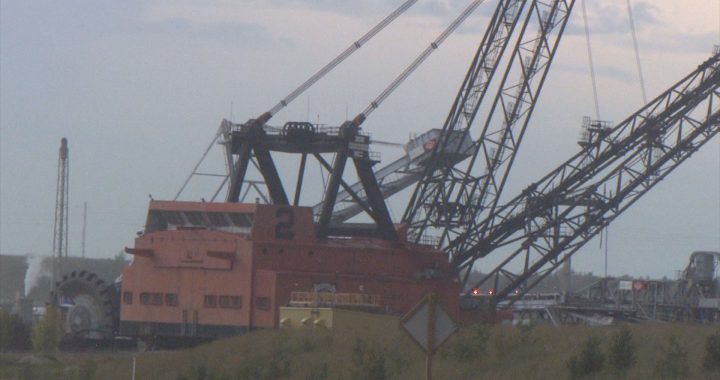
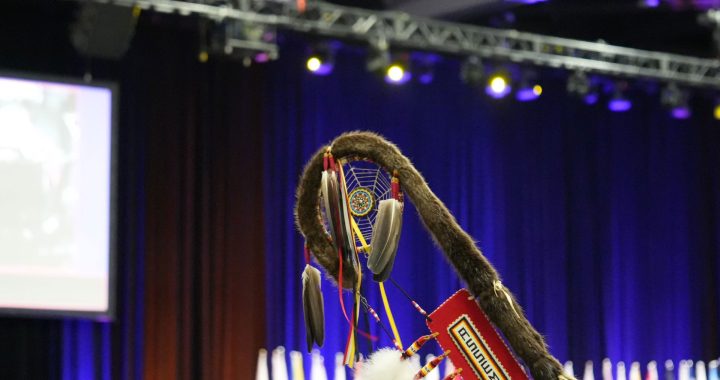

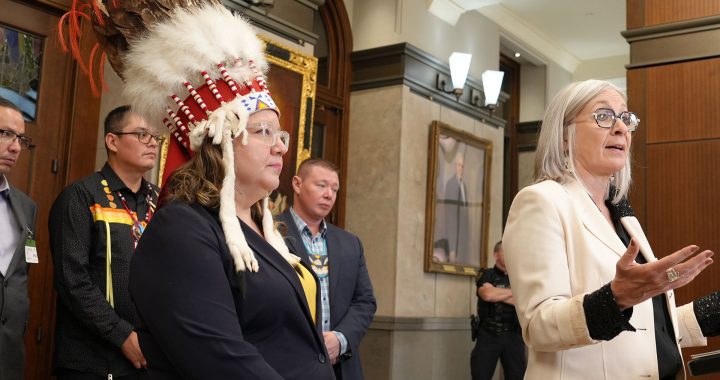
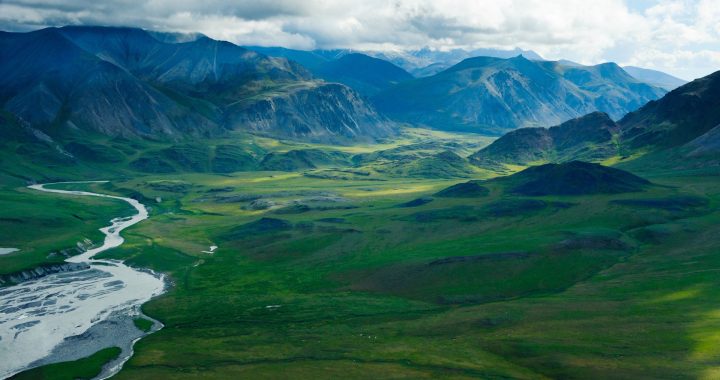

When I watched Ibbitson of the Globe and Mail video, I have grave doubts that Harper will follow through with his promises. Ibbitson did a propaganda spiel for the Enbridge pipeline. He said, the Enbridge pipeline would be the best thing for the F.N…..Since the wheel was invented. Enbridge has had 804 pipeline spills, within the last 10 years. Enbridge didn’t even clean up their disaster of their spill, into the Kalamazoo River. Well over 80%of we BC citizens, are supporting the F.N. People. To stop the atrocities of the Enbridge pipeline, and the dirty tar oil tankers, from China.
Harper has done nothing about, the filthy diseased fish farms killing the wild salmon. Nor has the Campbell/Clark BC Liberals. Campbell’s theft and sale of the BC rivers, is another disaster. They built dams in those rivers, further destroying the salmon runs. The Kokish River project, will destroy another salmon run, and also the steel head fish.
I see Harper, nothing other than a monster. He is full of dirty tactics, if you don’t watch your back, you will get a knife in it.
Harper is a Reformer. He is governing Canada by his own party, the Northern Foundation Party. This has been Harper’s party, since 1989.